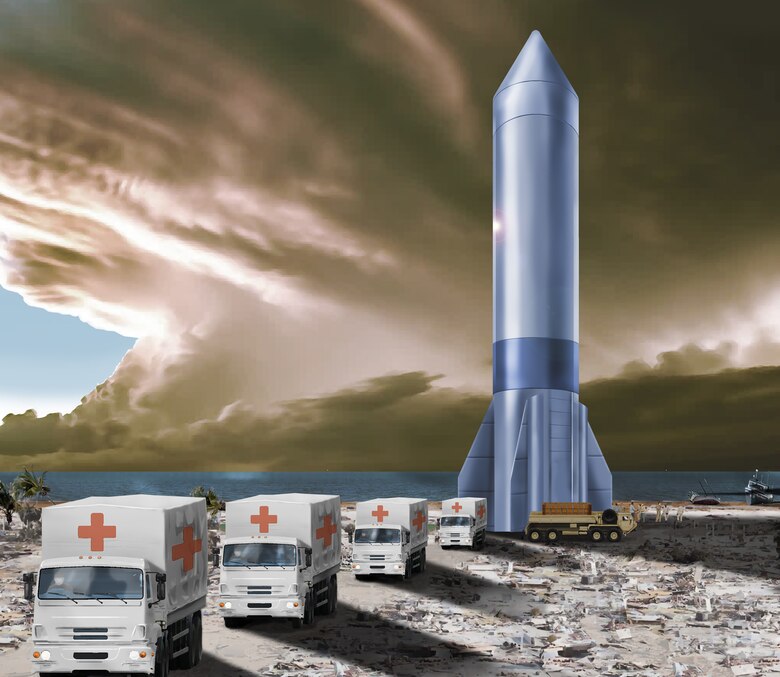The US will develop a Vanguard rocket program to send military cargo payloads rapidly around the world, the US Air Force (USAF) announced on Friday.
“The Department of the Air Force announced June 4 the designation of Rocket Cargo as the fourth Vanguard program as part of its transformational science and technology portfolio identified in the DAF 2030 Science and Technology strategy for the next decade,” the USAF said in a statement.

The US Space Force was designated as the lead service for Rocket Cargo Vanguard and the Air Force Research Laboratory (AFRL) will lead a science and technology effort to determine the viability and utility of using large commercial rockets for the Department of Defense global logistics, the statement explained.
The Space and Missile Systems Center will serve as the Program Executive Officer while the AFRL will research and develop the unique aspects needed to leverage the new commercial capability for the Department of Defense logistics mission, the statement said.
AFRL scientists and engineers will also research the ability to safely land a rocket near personnel and structures, engineer a rocket cargo bay and logistics for rapid loading and unloading, and airdrop cargo from the rocket after re-entry in order to service locations where a rocket or aircraft cannot possibly land, the statement added.
The release added that delivering cargo via rocket transportation is not a new concept. Historically the high costs of launch have been prohibitive for a logistics-focused application, and the relatively small payload capability constrained the types of cargo that could be delivered, also limiting its suitability.
Today several commercial companies are quickly generating new opportunities by developing large rockets and reusable stages that safely land back on earth, expanding cargo capacity and dramatically reducing launch costs.
“Rapid logistics underpins our ability to project power,” said Gen. Arnold W. Bunch, Jr., commander of Air Force Materiel Command. “That is the fundamental motivation for initiating the Rocket Cargo program. We see its initial applications in swiftly restoring operational capability for forces forward in austere environments as well as dramatically reducing the time required to deliver crucial humanitarian assistance and disaster relief.”
Rocket Cargo joins three current Vanguard programs, including Skyborg (an autonomy core system in a low-cost, attritable unmanned aerial platform to enable autonomous operations); NTS-3 (a flight experiment to examine and field capabilities across the ground, space and user segments to enhance space-based positioning, navigation, and timing); and Golden Horde (an initiative to demonstrate collaborative autonomous networked weapons by creating an integrated weapon system where different technologies work together to defeat targets).




